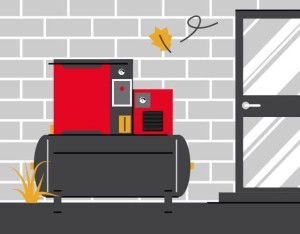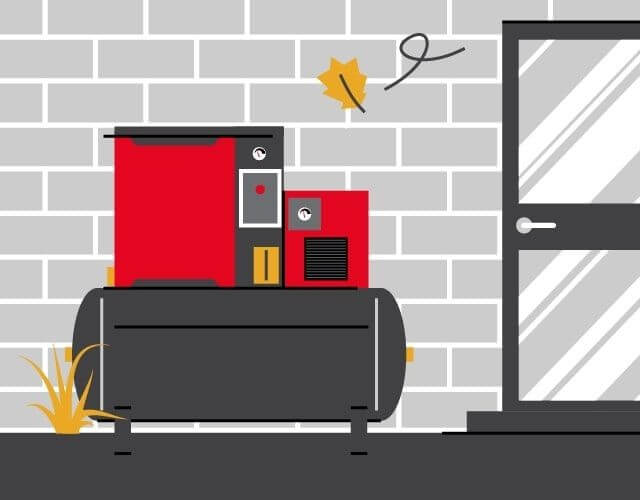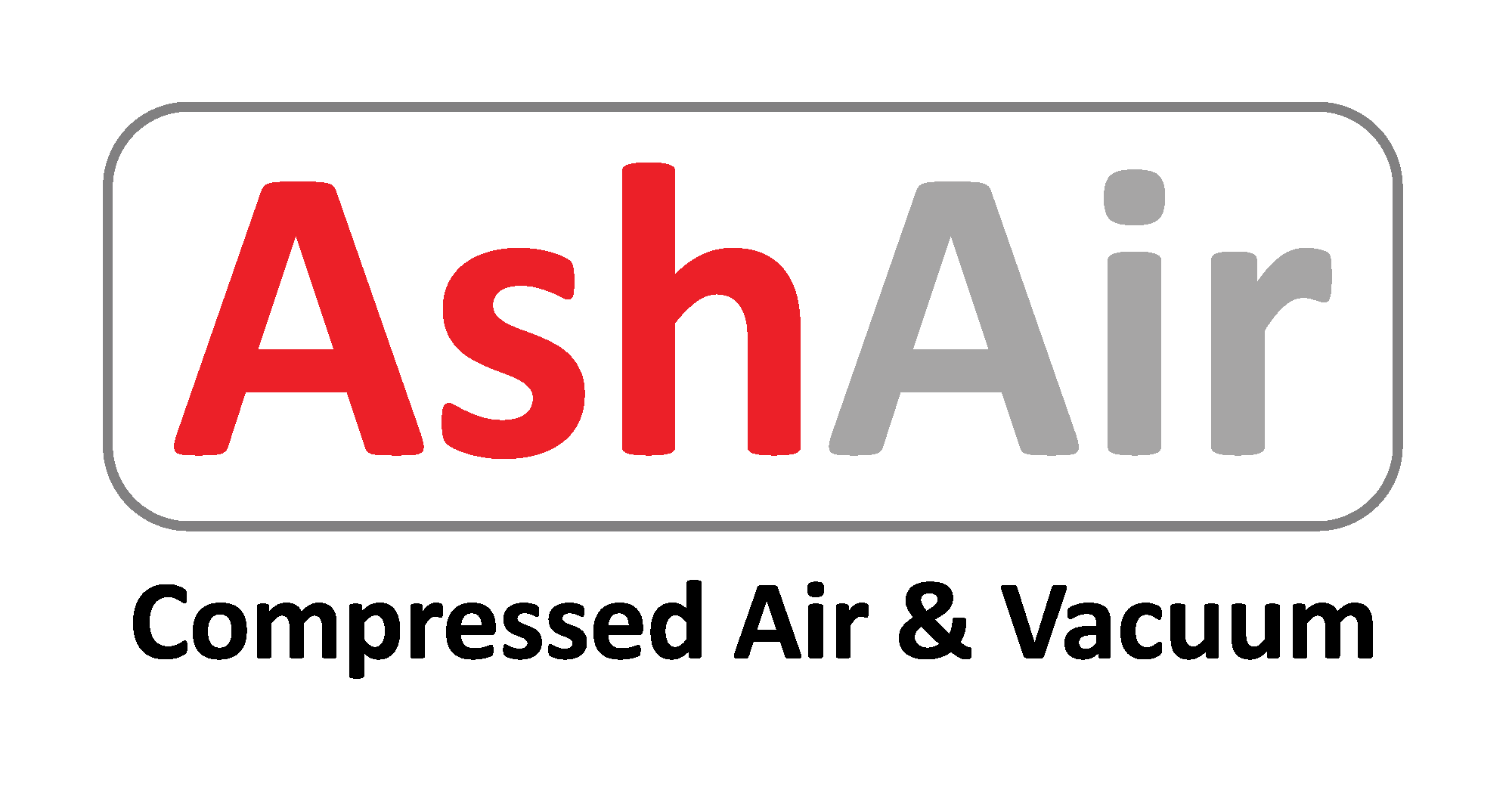 How
do I winterise my air compressor?
How
do I winterise my air compressor?
The Why, How and the Help to Protecting your Machine
That cold, rainy, and in some places icey New Zealand winter is upon us, and with the following air compressor tips, your air system will be prepared with the preferred temperatures, despite the weather outside. Regardless of whether or not it actually snows or freezes up where you live, most winterisation service recommendations are also basic, solid maintenance procedures that will help extend the life and operational efficiencies of air compressors regardless of whether you live in Queenstown or Northland.
Watch for Water
The condensate in your machine contains mostly water, which means it will freeze if it gets too cold. Frozen condensate will affect the way your compressor runs, in turn blocking the drainage or causing cracks or holes. Also, keep in mind freezing weather causes moisture control to be less effective, which will lead to corrosion.
Lets Get Started with Wintering:
- Ice Build Up:
Always check for ice build-up or excessive moisture before you power up the machine in the morning. Remove the ice and check to ensure there is no leak.
- Weather Stripping:
Check the installation and stripping on your air compressor. This is there to protect your machine from the changing weather. If worn or torn, replace immediately.
- New Filters:
Changing your filters should be done routinely, but they are especially important in winter. With the cold weather, oil thickens and does not flow easily making your compressor work harder. New filters will help counterweight the effects of thicker oil.
- Exposed Drain Lines:
If your drain lines run outside, you need to make sure you are protecting those from the winter weather. Outdoor drain lines will lead to frozen pipes and an air compressor that either works more slowly or may not work at all. A way to prevent frozen pipes is by applying heat trace tape on exposed drain lines outside. Heat trace tape is easy to assemble by simply wrapping the tape around the pipes working to control the temperature, eliminating frozen pipes.
- Internal Heater:
If your compressor is still being effected by the winter temperatures, installing a heating cabinet or internal heater will allow you to
regulate the temperature of your system.
Now, let's get into the steps for winterizing your air compressor.
Step 1: Check for Leaks
Before the cold weather hits, inspect your air compressor for any leaks in the air lines, fittings, and connections. Leaks can be exacerbated by freezing temperatures, so it's crucial to fix any issues before winter arrives.
Step 2: Drain the Tank
Compressed air systems can contain moisture, and when this moisture meets freezing temperatures, it can lead to damage. Ensure your air compressor's tank is drained regularly. For winterization, consider adding an automatic tank drain valve, which can help maintain dry air.
Step 3: Change the Oil
Cold weather can affect the viscosity of the oil in your compressor. It's a good idea to change the oil to a winter-grade lubricant recommended by the manufacturer. This will ensure that your compressor operates smoothly in cold conditions.
Step 4: Insulate and Heat
For some air compressors, consider insulating the unit to maintain a stable internal temperature. You can use heating tape in extremely cold environments to prevent moisture from freezing within the compressor.
Step 5: Use Synthetic Lubricants
If you live in an extremely cold climate, consider switching to synthetic lubricants. These lubricants can withstand lower temperatures and provide better protection to your air compressor's components.
Step 6: Install a Cold-Start Kit
In colder regions, installing a cold-start kit can be a game-changer. These kits warm the engine before startup, reducing wear and tear caused by cold starts.
Step 7: Protect the Air Intake
Snow and ice can block the air intake. To prevent this, you can use a protective cover or build a shelter around your air compressor. Ensure the shelter has proper ventilation to prevent heat buildup.
Step 8: Regular Maintenance
Throughout the winter, continue to monitor and maintain your air compressor. Check for any signs of damage, ice buildup, or other issues. Regular inspections can help prevent costly repairs.
Winterizing your air compressor is essential for ensuring its performance and longevity during the colder months. By following these steps and taking preventative measures, you can protect your investment and avoid costly downtime. Don't let winter chill your air compressor's performance; prepare it for the season ahead and keep it running smoothly.
Contact us today to schedule your winter checkup.
Ref to cpcompressors.com

Do you have an idea for our #expertcorner? Let
us know!
Who we are and how Ash Air can help your business!
Ash Air has been around in New Zealand since 1979, and we’ve grown into a nationwide company with international support and a reputation for quality and reliability.We look after all things compressed air for your business!
- Reciprocating, Screw, air compressors
- Vacuum pumps
- Nitrogen
- An extensive line of air treatment components
Ash Air's range of Chicago Pneumatic, Alup, Pneumatech, and Quincy compressors are used extensively around the world in industries ranging from oil and gas to food, automotive and farming, and we bring you these world class compressors here in the land of the long white cloud.Our technicians are compressed air equipment experts and are dedicated to addressing customer needs. Supported by a 13 locations nationwide, Ash Air offers one of the widest selections of compressed air equipment and parts available today in New Zealand.
Reliability and Efficiency
With Ash Air compressors, you can count on reliability and high performance for even the most demanding applications. We focus our efforts on the following:
- Increasing uptime
- Reducing unexpected repairs
- Reducing energy consumption
- Improving the cleanliness of compressed air


